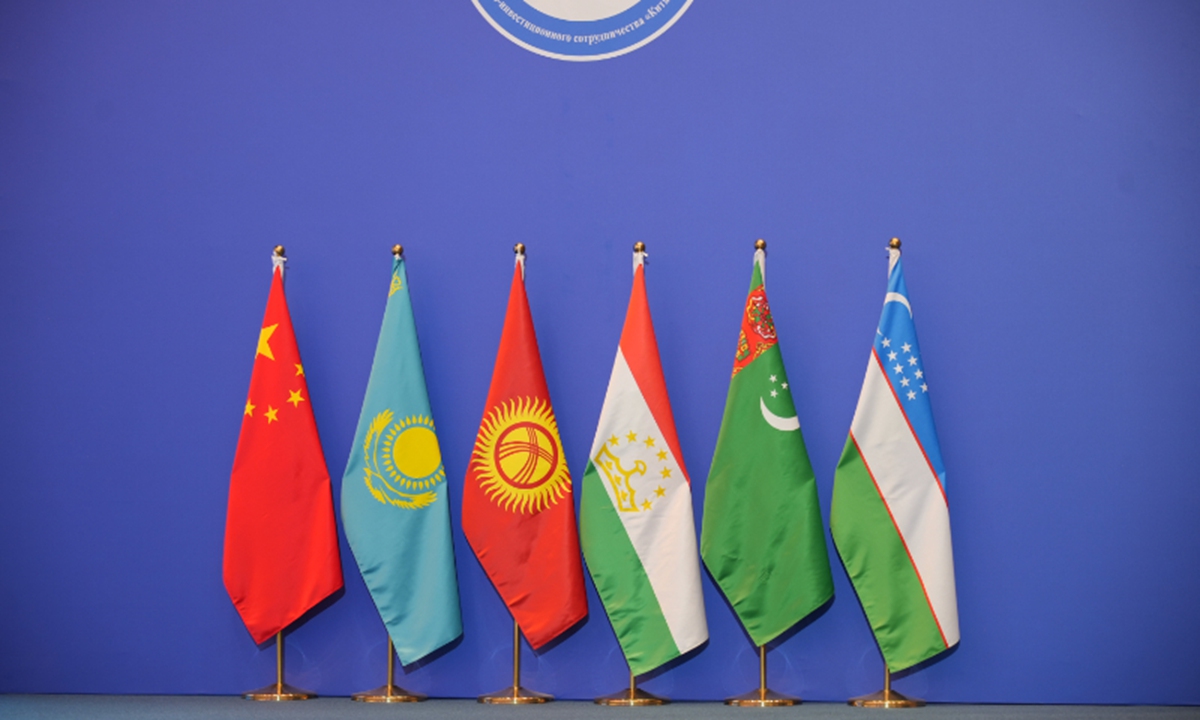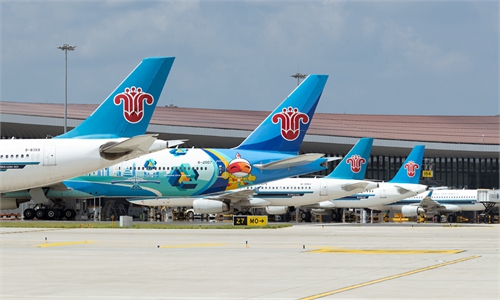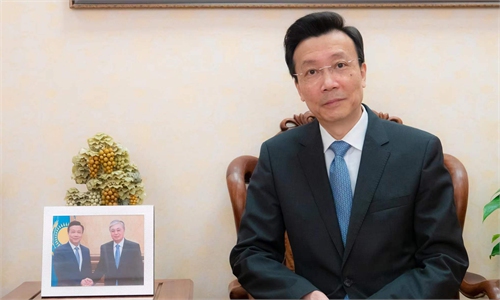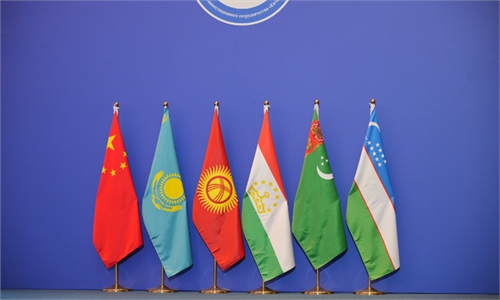High-level China-Central Asia Summit about to commence, 'inevitable result' as ties deepen

China + Central Asia (C+C5) Photo: VCG
Visits from Central Asian countries to China, as well as the commencing of high-level China-Central Asia Summit are expected to open a new chapter for China's relations with Central Asian countries, and are viewed as "an inevitable result" as China and Central Asian countries cooperate to cope with international turmoil.Leaders at the summit are expected to reach wide-ranging consensus from economic cooperation to security issues of respective concerns, such as the Ukraine crisis, said experts. They believe win-win cooperation is what Central Asian countries need the most and what China can offer; while certain extraterritorial countries' fomenting dissension between Central Asian countries, China and Russia will only make themselves "country non grata" in the region.
Leaders from five Central Asian countries are scheduled to attend China-Central Asia Summit, which will be held on May 18 and 19 in Xi'an, Shaanxi Province. President Xi Jinping will chair the summit, foreign ministry spokesperson Hua Chunying announced last week.
At the invitation of Xi, President Kassym-Jomart Tokayev of Kazakhstan, President Sadyr Japarov of Kyrgyzstan, President Emomali Rahmon of Tajikistan and President Shavkat Mirziyoyev of Uzbekistan will pay a state visit to China respectively from Tuesday to Saturday this week.
The China-Central Asia Summit marks the "first major diplomatic event that China will host this year" and will be the first ever in-person summit between the leaders of China and five Central Asian countries since the establishment of diplomatic relations 31 years ago. Chinese observers said it will "usher in a new chapter of China's relationship with Central Asia."
Chinese Ambassador to Kazakhstan Zhang Xiao said in an exclusive interview with the Global Times on Monday that Kazakh President Tokayev's visit to China will play a strategic leading role of the head of state diplomacy, promote the success of the China-Central Asia Summit, and push forward development of China-Kazakhstan relations and cooperation in various fields to a further level. Zhang also said that China will strengthen cooperation with Kazakhstan on counter-terrorism and the Ukraine crisis.
In an interview published on Monday, Zhang said the summit will inevitably lead to the elevation of China and Central Asian countries' ties. The summit will also address international issues, as well as various regional challenges.
The ambassador, citing complicated international atmosphere, featured by Russia-Ukraine conflict, overlapping crisis on economy, energy and food, and certain countries' playing up of confrontation, decoupling, said the summit sends a clear signal that China and Central Asian countries will work together to overcome the difficulties, and jointly build a closer China-Central Asia community with a shared future.
At the upcoming summit, the six leaders will take stock of cooperation and launch new initiatives to firmly and effectively promote comprehensive cooperation between China and Central Asia and build a new model of mutually complementary and mutually beneficial cooperation, said Shavkat Alimbekov, leading researcher at International Institute for Central Asia, an organization established in Uzbekistan.
Alimbekov specifically pointed out that the China-Central Asia Summit will give new impetus to the high-quality construction of the Belt and Road. "One of the key aspects of this cooperation is the development of the 'Green Silk Road,' that is, the use of green development technologies, innovative solutions and advanced technologies to achieve environmental efficiency and sustainability," said Alimbekov.
This year also marks the 10th anniversary of the Silk Road Economic Belt initiative proposed by Xi during his visit to Kazakhstan in 2013.
Chinese experts said cooperation on security will be another focus at the summit because of new risks and challenges in the region, including the risks emanating from the US' hasty withdrawal from Afghanistan that have spilled over to regional countries, and the ongoing Ukraine crisis.
The crisis is a security issue that is of top concern both regionally and internationally, thus it is likely to be discussed at the summit, Qian Feng, director of the research department at the National Strategy Institute at Tsinghua University, told the Global Times. He expects the six countries to reach more consensus on how to help in resolving the crisis, as "Central Asian countries share and support China's proposition on pushing for peace negotiation; such method of settlement is also in line with those countries' interests."
During a meeting between foreign ministers from China and five Central Asian countries held in Xi'an in April, ministers from Central Asia support China's initiative of persuading peace and promoting talks, and advocate that conflicts should be resolved through diplomatic means in accordance with the spirit of international law.
US disguised assistance
Since the Ukraine crisis, the US has been increasing interactions with Central Asian countries.
In February this year, US Secretary of State Antony Blinken visited Central Asia and met with his counterparts in all five Central Asian countries. US officials have said the Biden administration is seeking to step up engagement with the region, especially for countries facing economic fallout from the conflict.
Last month, foreign ministers from G7 countries committed to collaborating on Central Asian challenges, such as the fallout from the Ukraine crisis, Afghanistan's destabilization, and food and energy insecurity.
Qian doubted whether the so-called assistance is in fact blustery promise, as countries from the G7 group are in a bind of financial problems, such as US' debt ceiling stalemate.
He noted that as US' influence in the region rapidly diminished after its hasty pulling out from Afghanistan, the US has been leaning to Central Asian countries to maintain its interest, and seeks to sow discord between Central Asian countries and China, Russia.
Qian said the US scheme is both na?ve and will end up in being futile as it neglected Central Asian countries' close ties with Russia on geopolitical, historical and economic fronts; and overlooked the booming prospect of cooperation between China and those countries.
Central Asian countries are also watching US "assistance" with much caution. In an interview with the Global Times in 2022, Bulat Sultanov, former director of Kazakhstan Institute for Strategic Studies under the President of the Republic of Kazakhstan, said in order to achieve its own geopolitical purposes, the US organized a "color revolution" before and after the presidential elections in 2020 in Belarus, and it organized riots and an attempted coup in Kazakhstan in January 2022.
Qian said China never opposes win-win cooperation between Central Asian countries and others, but China objects any country that tries to establish hegemony and attempts to re-write regional order to satisfy its selfish purposes. "Central Asian countries need concrete cooperation that helps them develop and prosper, not to be treated as someone's pawn to go against other regional countries," said Qian.




